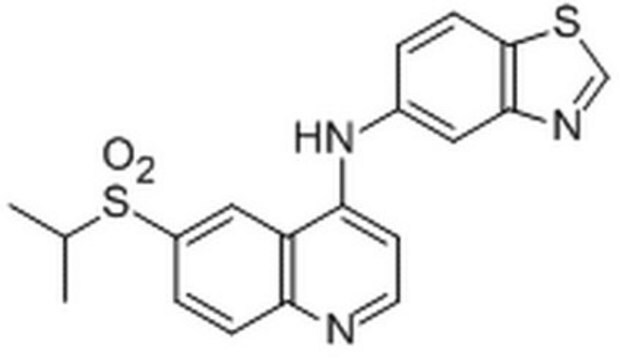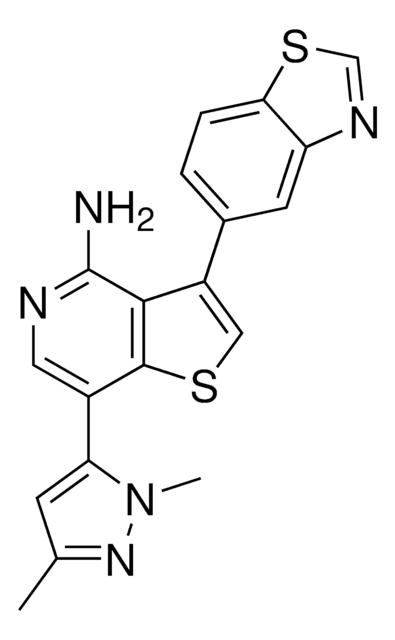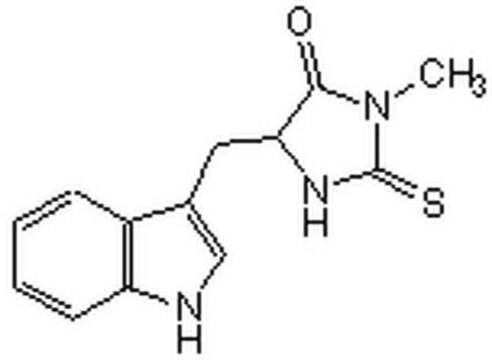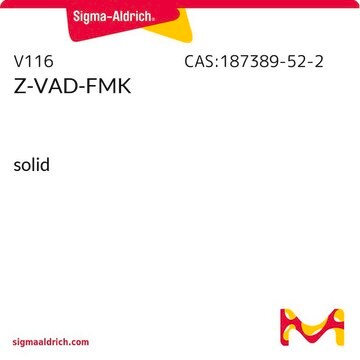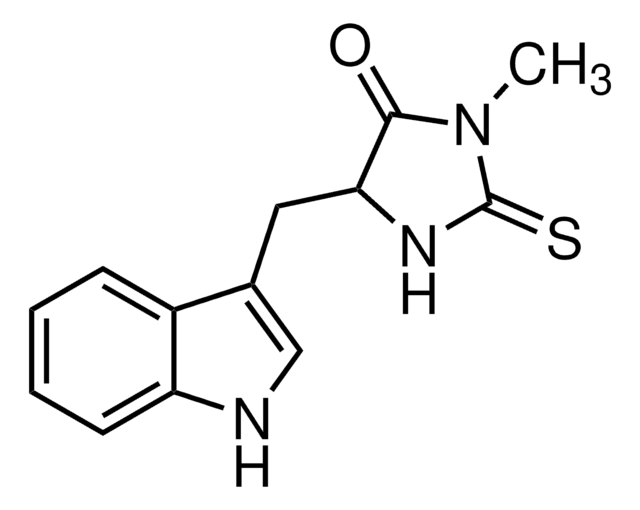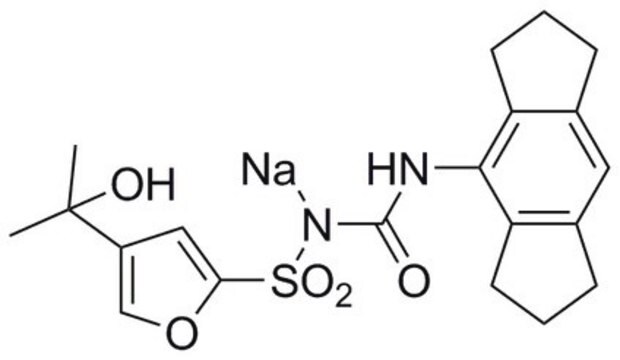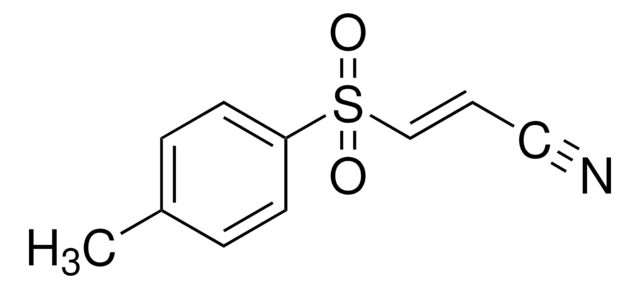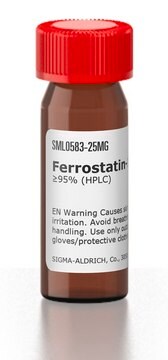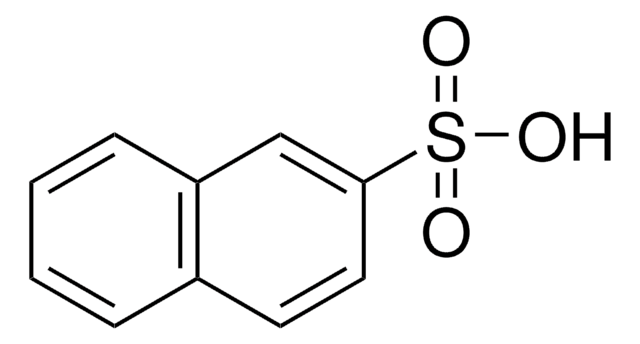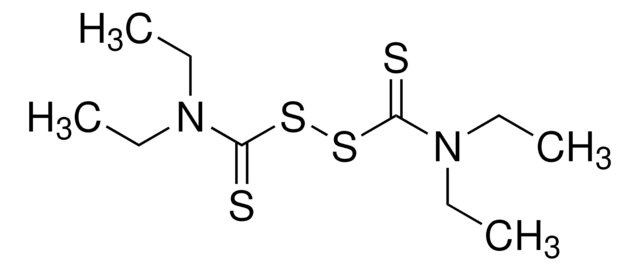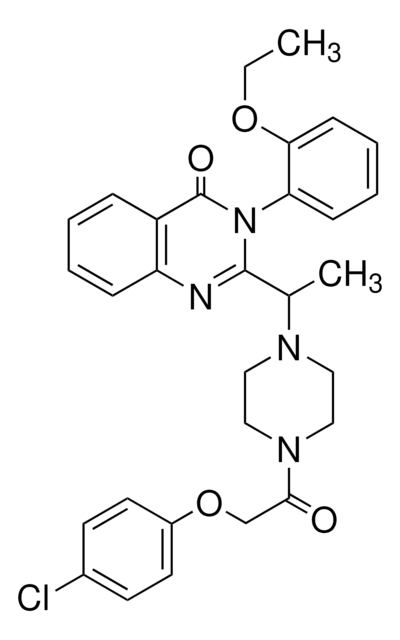480073
Necrosulfonamide
≥95% (HPLC), solid, MLKL inhibitor, Calbiochem®
Synonyme(s) :
MLKL Inhibitor, Necrosulfonamide, Necrosis Inhibitor III, Mixed Lineage Kinase Domain-Like Protein Inhibitor, Necrosome Inhibitor II, Necrosulfonamide, (E)-N-(4-(N-(3-Methoxypyrazin-2-yl)sulfamoyl)phenyl)-3-(5-nitrothiophene-2-yl)acrylamide
About This Item
Produits recommandés
product name
MLKL Inhibitor, Necrosulfonamide, MLKL Inhibitor, Necrosulfonamide, CAS 432531-71-0, is a cell-permeable inhibitor that covalently modifies Cys88 and blocks human MLKL adaptor function.
Niveau de qualité
Pureté
≥95% (HPLC)
Forme
solid
Fabricant/nom de marque
Calbiochem®
Conditions de stockage
OK to freeze
protect from light
Couleur
dark yellow
Solubilité
DMSO: 100 mg/mL
Conditions d'expédition
ambient
Température de stockage
2-8°C
InChI
1S/C18H15N5O6S2/c1-29-18-17(19-10-11-20-18)22-31(27,28)14-6-2-12(3-7-14)21-15(24)8-4-13-5-9-16(30-13)23(25)26/h2-11H,1H3,(H,19,22)(H,21,24)/b8-4+
Clé InChI
FNPPHVLYVGMZMZ-XBXARRHUSA-N
Description générale
Actions biochimiques/physiologiques
human MLKL
Conditionnement
Avertissement
Reconstitution
Autres remarques
Sun, L., et al. 2012. Cell 148, 213.
Informations légales
Code de la classe de stockage
11 - Combustible Solids
Classe de danger pour l'eau (WGK)
WGK 3
Point d'éclair (°F)
Not applicable
Point d'éclair (°C)
Not applicable
Certificats d'analyse (COA)
Recherchez un Certificats d'analyse (COA) en saisissant le numéro de lot du produit. Les numéros de lot figurent sur l'étiquette du produit après les mots "Lot" ou "Batch".
Déjà en possession de ce produit ?
Retrouvez la documentation relative aux produits que vous avez récemment achetés dans la Bibliothèque de documents.
Les clients ont également consulté
Notre équipe de scientifiques dispose d'une expérience dans tous les secteurs de la recherche, notamment en sciences de la vie, science des matériaux, synthèse chimique, chromatographie, analyse et dans de nombreux autres domaines..
Contacter notre Service technique